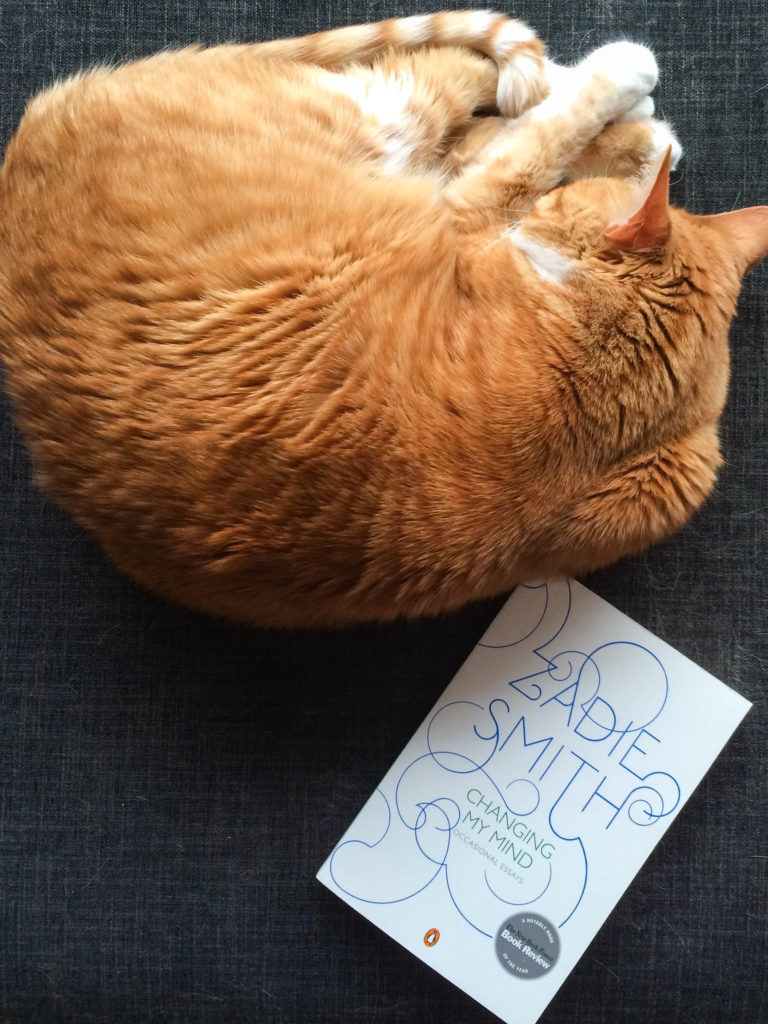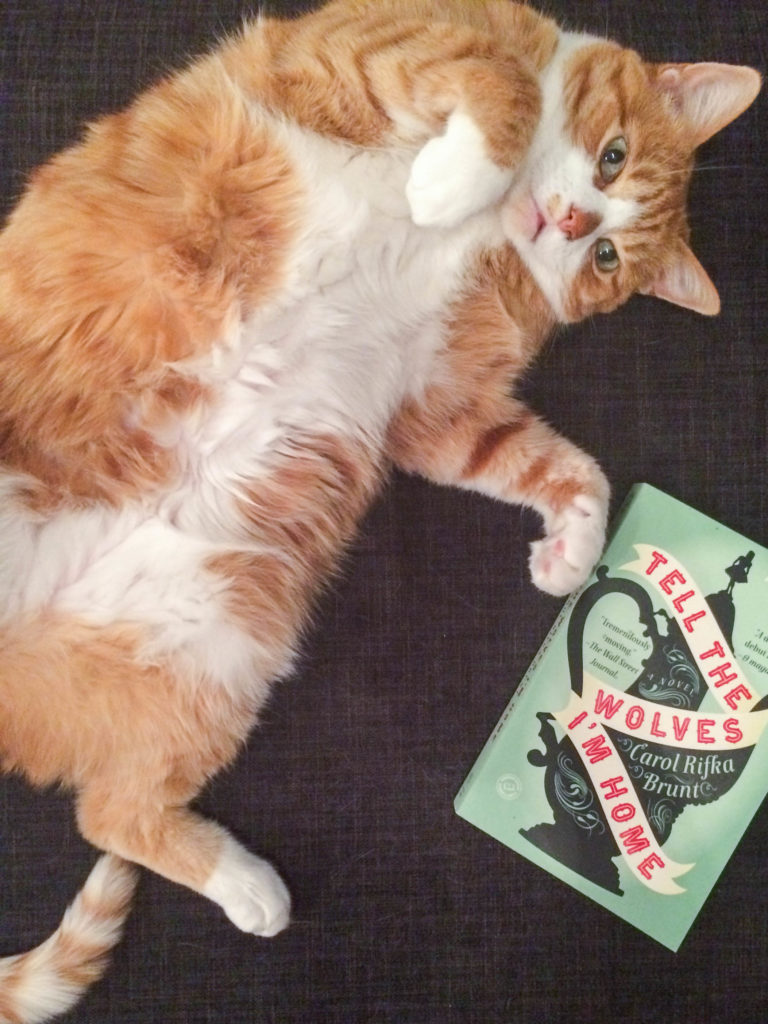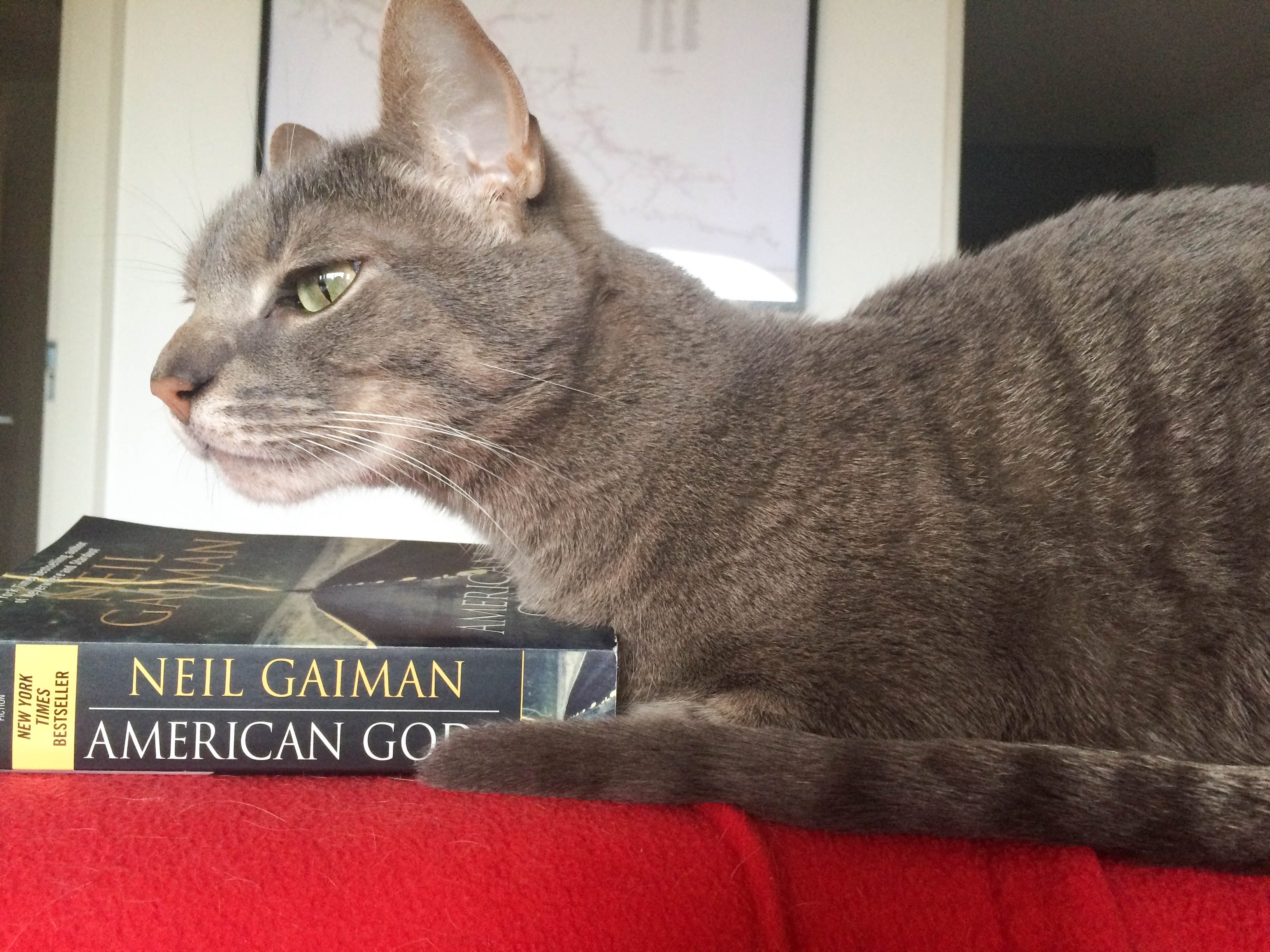Changing My Mind: Occasional Essays
– Zadie Smith
It’s been a few years now since I read On Beauty and White Teeth
, but I remember really loving both and I’d consider myself a fan of Smith’s. I would imagine if you are as educated in the world of literary criticism as Smith you might get more enjoyment out of this book than I did, but it’s difficult to say for whom this book is intended. Fans of her fiction might be disappointed, as I was, to discover that she doesn’t seem to think very highly of her own novels, particularly those early books that I loved so much. That disdain coupled with a few deeply academic essays about authors I’ve never read made the whole book feel elitist and inaccessible. That’s not to say there wasn’t great stuff in it. There are a few personal essays about her family, but there is a reluctance and almost shameful feeling about them, as if Smith is saying “sorry, folks, this one’s for the plebs. My editor made me do it.” Her heart clearly lies in the intensely nerdy stuff, and I’m sure she does it well. It was just way, way over my pretty little head.
The Pearl That Broke Its Shell – Nadia Hashimi
It’s difficult to be critical of a book about women in Afghanistan, because these are the kinds of underrepresented voices that I want more of. I feel some pressure not just to champion this book for its subject matter, but also to love and adore it, as if the subject matter has the ability to transform everything it touches into gold. This book tells two stories about women in Afghanistan, one in the past and one in the present, with a plot device that I usually adore – elderly member in the present tells a story about ancestor of the past. There is a lot to love about this book, and it has an interesting perspective on how life in Afghanistan has or hasn’t changed for women in the intervening years between the two storylines. However, the quality of the writing leaves a lot to be desired, with numerous tense/perspective errors that an editor should have caught, such as first-person asides in a third-person narrative and an important action that’s supposed to illuminate a character but is actually, unintentionally, attributed to the wrong person. Still, I’m inclined to give Hashimi the benefit of the doubt, and blame the shoddy craftsmanship on her editor. It’s a nice book and I think most people will enjoy it.
The Adventures of Jimmy Stick: a saga of Romance and Adventure – Johnson Underwood
One of my oldest friends wrote this one, so I am hugely biased. I enjoyed it, but I don’t think John would mind me describing this book as fucking ridiculous. We follow the titular character along a hero’s journey through hell and back, yes literally, and there are zombies, mummies (zombie-mummies to be precise), robots, government conspiracies, and a host of bizarre characters that Jimmy meets during his travels. It’s easy to see that John’s a fan of Hunter S. Thompson, and that’s not just because I already knew that about him. Thompson’s blithe, bemused and sometimes paranoid take on the absurdities of life, both real and imagined, is well represented here. The strongest bit is in the middle, with the pay-off for the slightly overpacked first 50 pages only teased at the end, promised for future books. Jimmy Stick #1 is self-published so, if you’re a fan of fast-paced silly adventure books with robot sex, you can probably get this one for a steal.
Tell the Wolves I’m Home
– Carol Rifka Brunt
It’s 1986 and June’s uncle and favorite person, Finn, has just died of AIDS. As June gets to know more about the part of her uncle’s life that had been kept secret from her, she also gets to know Finn’s “special friend.” Brunt manages to paint a picture of June’s family (especially June’s mom, Finn’s sister) and their reaction to Finn’s death in a way that is both sympathetic and revealing of their 1986 homophobia. The most interesting relationship in the book for me, though, didn’t involve Finn at all. The sisterhood between June and Greta is gorgeously tender. When they are at each other’s throats, they both blame the other for fracturing the bond, both wistful for the closeness they had when they were younger. In the moments when they are united, the fragility of their relationship made me want to hold my breath for fear of disturbing it. June is just beginning high school and Greta is on her way out, and the way Brunt described the conflicting feelings of both wanting and fearing adulthood was spot-on and not quite like any other coming-of-age book I’ve read.
A Supposedly Fun Thing I’ll Never Do Again: Essays and Arguments
– David Foster Wallace
This is one of those books that you can’t stop reading and never want to end. I arrived late to the DFW party, having wrongly assumed Wallace was (just) an overrated blowhard for mustache-having, Warby Parker-wearing tweeds. I started reading Infinite Jest last year as a character-building exercise and surprised myself by falling in deep love with it about 200 pages in. As I read the funny, smart and so perfectly written essays in this collection, I became acutely aware of the fact that I was mining a finite resource. Every page gone was a reminder that Wallace is dead and my opportunities to read his material for the first time are limited and growing smaller. Bittersweet to say the least. His voice is so clear and consistent that it’s easy to see why there’s a cult. Ultimately it’s Wallace’s sincerity that appeals to me so much. It comes through especially in the essays about tennis, where he manages to make you care – really care – about what is actually a pretty boring subject. By the time I got to the final eponymous essay about the cruise ship, I was ready to follow him anywhere. Sure there’s some misogyny, but if I can overlook it, I reckon you can too.
 American Gods
American Gods – Neil Gaiman
Although I’ve enjoyed Neil Gaiman as a person-on-the-internet for several years now, I’d never read much of his work until recently. I’m still only dipping my toe into his vast canon so I haven’t really figured out which iteration of Gaiman I like the most yet. I liked American Gods, but I wish I’d read it when I was a bit younger and not so critical. I’m qualifying my tepid review of this one because I respect his writing so much, and I loved The Ocean at the End of the Lane. I know Gaiman is a masterful storyteller; and this book is well written and definitely has that wry Gaimany style. It meanders in an interesting and road-trippy way in the first three quarters and I liked the vignettey-yet-still-cohesive way that new characters are introduced. As the need to bring resolution to all these complex characters and plot twists approaches in the end of the book, though, the pacing over-accelerates, sacrificing form for function. Although there is at least one other book that takes place in this world (Anansi Boys), American Gods itself might have been better served as a more expansive series of three or four books. There is definitely enough material to go around and the frenetic endings (plural) especially could have used a little more air.
